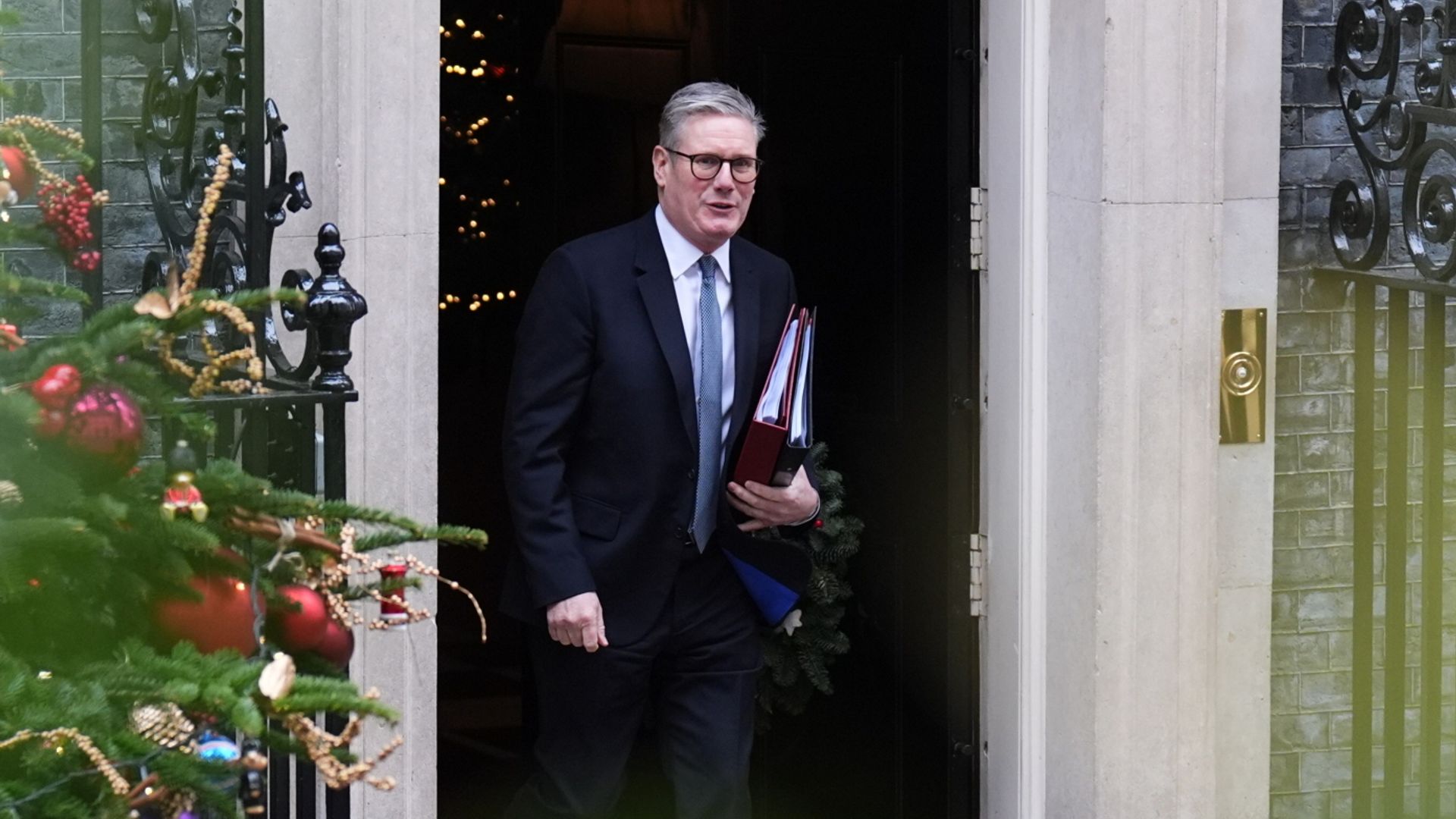Sir Keir Starmer has said it is not his “plan” to increase any more taxes before the next election – but he cannot categorically rule them out if “unforeseen circumstances” strike the government.
The prime minister told the BBC he did not “want to suggest we’re going to keep coming back for more because that isn’t the plan”.
However, he said the war in Ukraine and the COVID pandemic were examples of events “we can’t see now” that might necessitate further tax hikes.
Politics latest: PM meets with UK and Irish leaders
The prime minister’s words come after Rachel Reeves, his chancellor, initially ruled out further tax rises in a speech to business earlier this month – only to fail to repeat the pledge just days later.
Some of the tax rises announced in the October budget – including an increase in employers’ national insurance contributions and changes in inheritance tax for some farmers – have proved to be unpopular with the public, with the latter group staging protests to highlight their unhappiness with the measure.
Follow our channel and never miss an update
Asked why he believed his popularity had dropped since the election, the prime minister said it was because he had taken “tough decisions” early on in his premiership.
“I just don’t want to do what politicians have done in the past which is to get in the warm bath of empty promises,” he told the BBC.
“I’m prepared to roll up my sleeves and tell people it’s tough – we’re going to do it but you’re going to be better off.”
He added: “You’ll have a better health service, you’ll have better houses, you’ll have better energy bills at the end of this and I’ll be judged, quite rightly, at the end of the parliamentary term whether I’ve delivered on what I said I would deliver on.”
Please use Chrome browser for a more accessible video player
On Thursday the prime minister gave a major speech in which he promised change with six new “milestones” he said would be reached by the end of this parliament – including raising living standards in every part of the UK, building 1.5m homes in England and fast-tracking planning decisions on at least 150 major infrastructure projects.
He said they would “drive forward” his party’s missions and allow the public to “hold our feet to the fire” – but he was challenged on why bringing down migration had failed to make the list.
The prime minister said in response: “It is our duty to do it [bring migration down]. And we will do it.”
Read more:
Can Labour turn things around?
Tory co-chair accuses Elon Musk of trying to ‘buy’ Reform UK
Please use Chrome browser for a more accessible video player
Speaking to Sky News this morning, housing minister Matthew Pennycook said the UK needed to invest in training and apprenticeships for its “ageing construction workforce” to meet the prime minister’s milestone for housing and infrastructure.
For this, he said “some overseas workers will be required”.
“The previous government added construction to the shortage occupation list – it’s made a bit of a difference, but not enough,” he said.
Pressed on whether bringing more workers would be good for Labour’s plans to reduce migration, Mr Pennycook said it was the last government that made it easier for builders and tradespeople to get visas.






